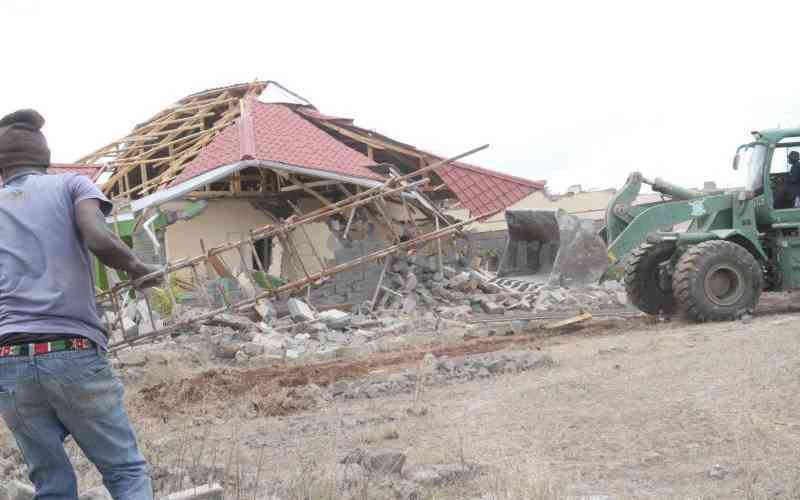
A lot of finger-pointing and blame games are going around regarding the demolitions in Athi River. It is truly sad to watch palatial homes, churches, and schools being flattened by bulldozers. But amid the ruins, the one establishment that should be demolished remains standing: The cartels in the real estate industry.
Cases of irregular government land allocation and land grabbing by "cartels" remain a reality in the real estate sector, exposing developers and individuals to losses. The intricate web extends to government officials who falsify land records to criminals printing land titles in "River Road" targeting innocent and sometimes gullible Kenyans in pursuit of cheap land deals.